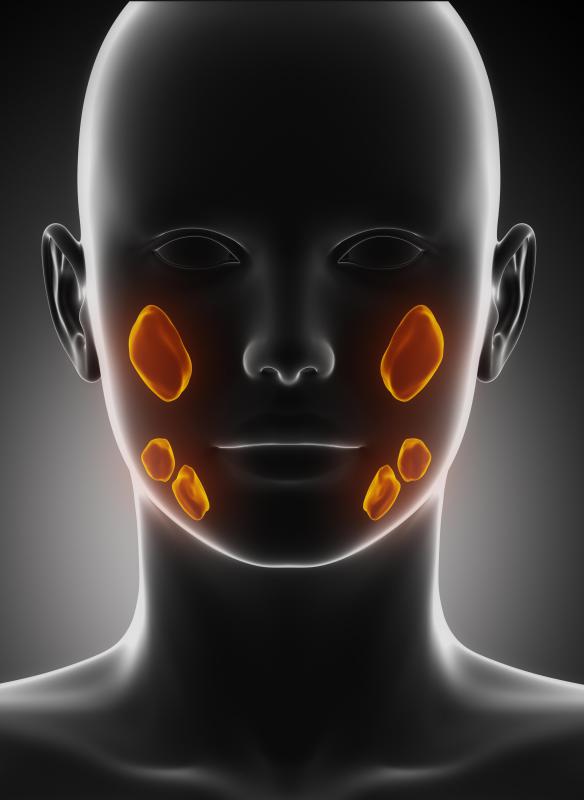At TheHealthBoard, we're committed to delivering accurate, trustworthy information. Our expert-authored content is rigorously fact-checked and sourced from credible authorities. Discover how we uphold the highest standards in providing you with reliable knowledge.
What is Parotid Cancer?
Parotid cancer is a rare form of malignant tumor that arises in the parotid, or the large salivary gland at the back of the jaw. Most parotid tumors do not cause adverse physical symptoms, though an especially large or spreading malignancy may cause numbness, jaw pain, and difficulty swallowing. The cancer is relatively slow-growing, and surgical specialists can usually extract small tumors before they spread. Advanced parotid cancer is typically treated with a combination of surgery and radiation therapy.
There are two parotid glands in the head, occupying the space just in front of each ear. The glands produce and secrete saliva to aid in chewing and swallowing food. In most cases of parotid cancer, only one gland is affected. Doctors are unsure what exactly causes a malignant tumor to arise in the gland, though research suggests that environmental and genetic factors both play roles. A person who has a familial history of head and neck cancer is at an increased risk of developing the disorder. In addition, studies show that years of tobacco use, exposure to radiation, and generally unhealthy diets may also put people at risk.

Early-stage parotid cancer does not normally cause symptoms. As a tumor grows, however, a person may be able to feel a lump along in his or her jawline. The jaw may become chronically sore, and it might be difficult to swallow food. If a tumor grows large enough to put pressure on nearby nerves, numbness and muscle weakness in the affected side of the face can occur. A person who experiences any abnormal jaw symptoms should visit his or her primary care physician as soon as possible.

A doctor can check for parotid cancer by feeling the jawline, asking about symptoms, and conducting diagnostic imaging tests. Computerized tomography and magnetic resonance imaging scans may reveal the presence of a tumor. When a lump is found, the physician usually refers the patient to a specialist for further testing. Additional imaging tests and a tissue biopsy at an oncologist's office can confirm or rule out the presence of parotid cancer.

If cancer is discovered, the oncologist can grade the size and progression of the tumor to determine the best treatment option. Most small tumors are removed surgically, in a procedure known as a parotidectomy. A surgeon may be able to remove only the affected area of tissue, but most parotidectomies involve the excision of the entire gland. If cancer has already started to spread to other tissue, such as nearby lymph nodes, a patient may need to undergo radiation treatments in addition to surgery.
AS FEATURED ON:
AS FEATURED ON:













Discuss this Article
Post your comments